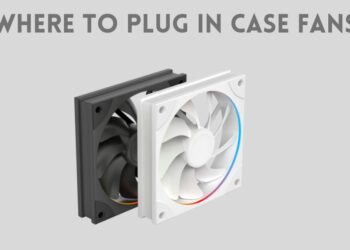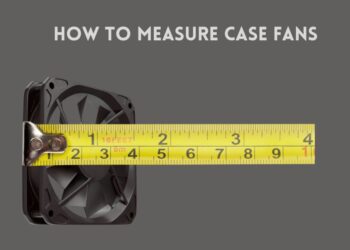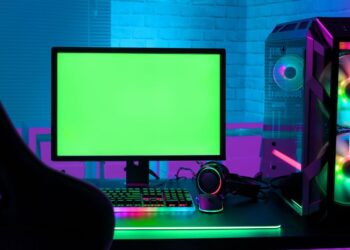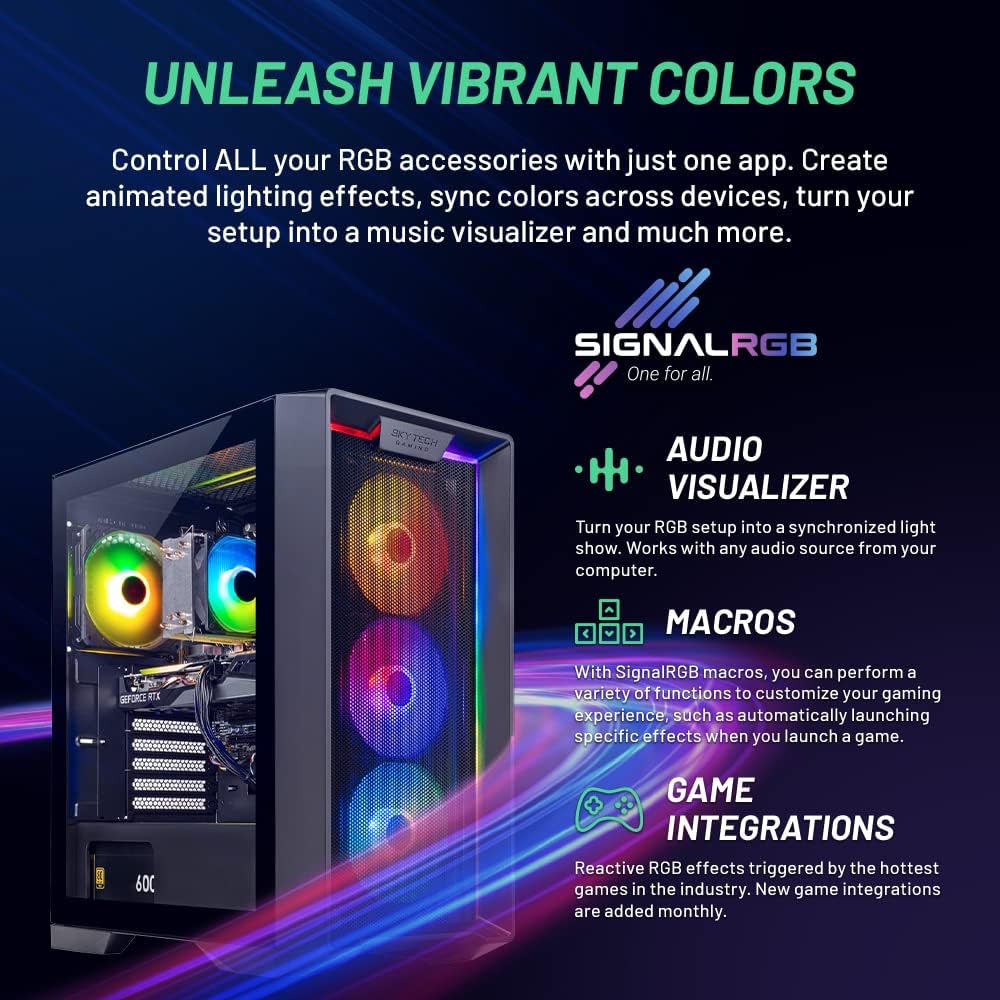Gaming on a computer typically requires strong performance across multiple components to deliver smooth, immersive experiences on visually demanding games.
With gaming desktop PCs often large and expensive, mini PCs have emerged as compact and affordable alternatives.
But with their small size come inherent limitations in power – so are mini PCs good options for gaming?

Mini PCs are small form factor computers that offer much of the functionality of a desktop PC in a highly compact enclosure, typically around 8 inches or less per side. They have surged in popularity for general home and office use thanks to their tiny footprints and energy-efficient operation.
But when it comes to running intensive video games, raw performance tends to take priority over size. This leaves many wondering if the compact format of mini PCs can still deliver adequate gaming capabilities alongside their convenience and portability. This article will explore that question in depth.
Quick Answer: Are Mini PCs Good for Gaming?
The short answer is that basic mini PCs are generally not well-suited for running modern, graphics-intensive game titles.
However, higher-performing mini PCs that have dedicated gaming components can deliver decent 1080p gaming experiences, albeit at lower graphics settings in many cases.
Here is a quick rundown of how capable mini PCs tend to be for gaming:
- Entry-level mini PCs rely on integrated graphics and low-power mobile processors, severely limiting gaming performance to basic 2D games.
- Mid-range mini PCs with quad-core processors and 4-8GB of RAM can handle classic console game emulators and some modern esports titles at lower settings.
- High-end mini PCs equipped with discrete GPUs and 6 or 8-core processors can run many modern titles at 1080p resolution and medium quality levels around 30fps.
So in summary – integrated graphics-based mini PCs are only good for the most basic games, while discrete GPU models allow for smooth 1080p gaming in many titles. But gamers aiming for 1440p or 4K gaming, or very high frame rates, will want to look at more powerful desktops instead of mini PCs.
Now let’s take a deeper look at the gaming performance factors in mini PCs.
Gaming Performance Factors to Consider in Mini PCs

Gaming requires compute performance across CPU, GPU, RAM, and storage components. Let’s take a look at each area and what to expect from mini PCs:
CPU Performance
The CPU (central processing unit) handles critical background processes during games like physics calculations, artificial intelligence, and handling user inputs.
Most mini PCs utilize mobile processors originally designed for laptops and tablets, which emphasize power efficiency over peak performance. Common examples include:
- Entry-level Intel Celeron and Pentium chips
- Mid-range Intel Core i3 and AMD Ryzen 3
- High-end Intel Core i5/i7 and AMD Ryzen 5/7
The fastest mini PCs can be equipped with 6 or 8-core processors which are reasonably capable of gaming. However, the more energy-efficient nature of mobile chips can leave CPU performance lacking compared to gaming desktop processors.
GPU Options
The GPU (graphics processing unit) is arguably the most vital component for gaming. This specialized processor handles rendering all the complex 3D graphics in real time that intensive video games demand.

Mini PCs have two main options when it comes to GPU power:
Integrated Graphics
The majority rely on integrated graphics built into the CPU chip itself rather than dedicated GPUs. But integrated graphics siphon away CPU resources to produce 3D visuals, limiting gaming abilities to very basic games.
Some newer mobile processors have relatively capable integrated graphics, like Intel Iris Xe chips. But in general, integrated graphics cannot handle modern AAA game titles well.
Dedicated GPUs
More expensive gaming mini PCs solve this problem by incorporating dedicated GPU chips from AMD or NVIDIA, the leading graphics providers for gaming PCs and laptops.
Examples include:
- NVIDIA GTX 1650 or 1660 Ti
- AMD Radeon RX 5500 or 5600 XT
These GPUs allow gaming mini PCs to run modern titles smoothly at 1080p resolution, albeit sometimes on lower graphics settings. This makes them decent compact options for PC gaming.
Gamers can also connect even more powerful external GPUs (eGPUs) through Thunderbolt 3 ports found on some mini gaming rigs. Attached externally, the enclosure holding the GPU can be as large as needed to fit top-end graphics cards. This makes mini PCs viable foundations for serious gaming or even virtual reality. However, full-sized desktops tend to get better value from their GPU hardware overall.
RAM Capacity
The amount of RAM (random access memory) available also affects gaming performance, with 8GB considered the minimum needed for modern system requirements.
Some mini PCs may only include 4GB out of the box. But gamers should choose models with 8GB of RAM preinstalled, preferably even upgradable to 16GB.
Avoid very low-end mini PCs limited to just 2-4GB RAM modules if gaming performance matters.
Storage Types
Gaming computers need relatively fast storage for quick level loading times and asset streaming during gameplay. Most mini PCs come equipped with either:
HDD Storage
HDDs (hard disk drives) offer lots of slower, cheap capacity thanks to spinning physical platters. But SSDs (solid state drives) are 5-6 times faster utilizing instantly-accessible flash memory rather than movable parts.
So mini PCs focused on gaming performance tend to include a decently sized SSD rather than mere HDD alone. A configurable capacity NVMe SSD or hybrid SSD/HDD storage helps mini gaming PCs achieve better load times.
Cooling Capabilities

Effective cooling is also pivotal to sustain the reliable gaming performance provided by high-end mini PC internals.
Without adequate heat dissipation, processor and graphics chips can throttle themselves by lowering speeds to cut temperatures.
Large gaming towers use elaborate liquid cooling radiators or rows of case fans to enable unthrottled operation under heavy gaming loads. But fitting effective cooling inside cramped mini PC cases presents a greater challenge for manufacturers.
Some solutions include:
- Small but efficient vapor chamber or heatpipe CPU/GPU coolers.
- Shared heatpiped heat sinks spanning multiple chips.
- Powerful blowers exhausting heat outward.
- Generous ventilation perforations in the compact chassis.
Fan noise tends to be unavoidable in compact cases with gaming-capable components to dissipate substantial heat generation. So gaming mini PCs usually run louder than modest office builds, but utilize various strategies to optimize airflow and temperatures.
Carefully engineered cooling solutions allow well-designed mini PCs to sustain gaming workloads without immediate thermal throttling. But their thermals can become borderline when running games for extended periods. Upgrading to aftermarket cooling modifications may help, but takes away from their seamless out-of-box experience.
In summary – look for mini PCs with clear ventilation channels, confirmed gaming performance testing, and reputable brands with a track record of effective cooling designs for small yet powerful computers.
Advantages of Mini PCs for Gaming
Assuming a gaming-focused mini PC build with adequate specifications as outlined above, what exactly are the benefits they offer to gamers?
Extremely Compact and Portable
The most obvious advantage stems directly from their diminutive size – extreme compactness. Gaming mini PCs with dedicated GPUs have volumes around just 2-5L compared to over 20L for most mid-tower desktops.
This tiny footprint allows placing them almost anywhere:
- On or under desks
- Next to monitors
- Inside entertainment unit shelves
Their lightweight also makes gaming mini PCs easy to transport to LAN parties or wherever needed. Instead of lugging 20kg+ PC towers around, even the most powerful mini gaming rigs stay under 2-3kg each.
Energy Efficient and Quiet (When Not Gaming)
Thanks again to their mobile DNA and smaller internal components, mini PCs draw far lower idle and light load power compared to much more electricity-hungry gaming PCs and laptops:
- 10-50 watt range vs 100-300+ watts
And when not running intensive games, their brand-name cooling fans and mobile processors generate little noise since demanding so little power.
Of course, the fan noise situation changes when gaming kicks the components into overdrive.
But the low energy draw and silent operation while idle or performing general tasks give mini PCs advantages as living room media boxes or office work devices.
Lower Cost than Gaming Laptops
Lastly, gaming mini PCs can cost noticeably less than their performance equivalents in gaming laptops, particularly when configured with similar core components:
- Mobile processors
- Dedicated mobile graphics cards
- SSD storage
- 8+ GB of RAM
The savings stem primarily from lacking batteries, displays and keyboards – relying instead on external monitors/TVs and input devices. This makes mini PCs more affordable baseline options for compact gaming systems.
Disadvantages of Mini PCs for Gaming
However, there are also certain inherent limitations to selecting mini PCs for gaming purposes:
Peak Performance Still Lags Desktops
Despite the most capable mini gaming PCs wielding potent mobile processors and graphics, their peak capabilities fall short of what full-sized desktops offer:
- CPU options don’t include extremely high TDP chips like AMD Ryzen 5950X or Intel Core i9-10900K
- GPU choices max out around NVIDIA RTX 2070 Super rather than top-end RTX 3080/3090 models
This leaves a significant headroom difference of 30-60%+ processing power left untapped between strongest mini PCs and gaming desktops.
In addition, their compact cases and constrained airflow can more quickly hit thermal ceilings during extended gaming sessions, causing earlier speed throttling. This is especially true in mini PCs lacking vapor chamber cooling designs.
So gamers wanting no-compromise speed for 1440p/4K resolution or 144Hz+ refresh rates need to stick with towers packing server-grade components.
Limited Future Upgradability
The highly integrated nature of mini PCs also restricts future upgrade options in most cases.
Their form factors strictly limit which extra internal hardware can fit inside their tiny space constraints should gaming requirements increase down the road.
At most, only storage, RAM and wireless cards tend to be user-swappable in these specialized designs. By contrast, traditional tower cases offer far more freedom and standardization for replacing various parts at will.
So mini PCs are certainly not as future-proof or customizable if you decide more gaming horsepower becomes necessary later.
Still Need to Buy Peripherals
Lastly, purchasing tiny mini PCs alone won’t complete your gaming setup. Being highly portable base units for processing power, they universally lack any attached displays, keyboards or other vital peripherals.
This not only bumps up costs but requires researching compatible monitors, keyboards, controllers etc. and hoping it all plays nicely together. All-in-one gaming desktops or laptops simplify this process by ensuring tightly integrated peripherals.
In summary, while mini PCs check the computing performance box, they add complexity around choosing and connecting the necessary monitor, input, sound and other gaming accessories.
Use Case Examples of Gaming Mini PCs
Determining if a mini PC suits your needs depends greatly on the types of games you want to play:
Ideal for Casual Retro Gaming

Towards the affordable end, entry-level mini PCs do perfectly fine running older classic game titles or retro console emulators. Their simpler 2D graphics and basic requirements are easily handled by basic CPUs integrated graphics.
Devices like the budget-friendly Intel NUC Home Mini PC Kit or ASUS VivoPC VM42 handle casual older gaming without issues.
Decent AAA Gaming with External GPUs

Enthusiasts wanting to play modern AAA games on high-end mini PCs can add beastly external GPUs through Thunderbolt 3 ports.
For example, connecting a Razer Core X external GPU enclosure with an NVIDIA RTX 3070 card can transform something like the Intel NUC 9 Extreme into a potent 1440p-capable gaming machine.
While pricey, this mini PC + eGPU combination rivals midrange gaming desktop performance in a very compact form.
Great Compact Couch Gaming Setup
Living room gamers connecting mini PCs to their TV for a console-like experience appreciate their small, non-intrusive footprint and simple gamepad-based controls.
Devices like the AVITA PURA P01 Windows Mini PC put unobtrusive yet respectable 1080p gaming performance right in your entertainment stand to hook up with Xbox/PlayStation controllers.
So mini PCs can blend seamlessly into couch gaming setups without needing to sacrifice significant processing capabilities.
Recommendations for an Ideal Gaming Mini PC

If interested in buying or building a mini PC focused specifically for gaming, keep these guidelines in mind:
Seek at Least a 6-Core CPU
Look for mini PCs powered by one of the latest generation hex-core mobile processors at a minimum. This includes chips like:
- Intel Core i5-10500H
- AMD Ryzen 5 5600H
While quad-core CPUs may suffice for very casual gaming, stepping up to 6 faster cores ensures adequate headroom.
Get a Dedicated GPU with at Least 4GB VRAM
Any mini PC relying purely on integrated graphics should be ruled out immediately for modern gaming purposes. Seek out mini PCs featuring discrete mobile GPUs such as:
- NVIDIA GTX 1650 with 4GB GDDR5
- AMD Radeon RX 5500M 4GB
These offer solid 1080p capabilities striking a good balance of gaming prowess and cost. Pay extra attention to video memory amounts on mini PC spec sheets.
Insist on 16GB RAM Minimum
Also double check your mini PC includes at least 16GB DDR4 RAM pre-installed rather than lower densities insufficient for smooth gaming. 8GB remains adequate for basic system needs, but 16GB gives that extra breathing room.
Pick Mini PCs with Better Cooling Brand Reputations
Not all mini PC manufacturers optimize thermals sufficiently, so prioritize brands like Intel NUCs, Gigabyte Brix or Zotac MEKs. Their engineering efforts allow properly handling gaming workloads in such confined chassis.
Or choose configurable models allowing you to customize more advanced cooling components suited for the compact gaming machine you have in mind.
Consider External GPU Dock for Even More Graphics Power

If planning to connect a gaming mini PC to external displays anyway, also think about adding an external GPU enclosure for maximum graphics potential.
Powerful AMD or NVIDIA cards require expansive cases with specialized cooling to operate optimally. Mating an mini PC to eGPU docks like the Razer Core line taps that separate potential.
Just ensure your selected mini PC model properly supports external GPU technology through Thunderbolt 3 or similar ports.
Conclusion: Gaming Mini PCs Do Have Limitations, But Can Certainly Suffice
In closing, while mini PCs generally work best as basic office machines or home theater PCs, models designed for gaming with extra computing horsepower integrated make for surprisingly decent 1080p performers. They often lag the raw performance limits of desktop gaming PCs, but miniaturized components have come far enough now to enjoy AAA gaming in reasonable capacities.
If opting for living room setups or already utilizing external displays where an compact footprint holds importance, today’s top gaming mini PCs warrant consideration. Creative cooling designs allow them to squeeze desktop-like speeds into tiny spaces even if ultimate upgradeability remains restricted. For many gamers without uncompromising demands, these mighty micro machines strike excellent balances of cost, capabilities and couch-friendly profiles.
So yes, mini PCs can definitely function successfully as gaming rigs – just be realistic about their inherent size and thermal tradeoffs. When chosen wisely, mini PCs now blend powerful modern mobile gaming parts into wonderfully unobtrusive packages perfect for entertaining centers or desks with limited space. They may fall short of no-holds-barred gaming towers, but gaming mini PCs have proven more than capable enough for mainstream needs.
Frequently Asked Questions
Can mini PCs run modern AAA games?
Mini PCs with dedicated graphics cards and high-performance components can run modern AAA games, but may require reduced graphics settings compared to a full-sized gaming desktop PC. Performance depends greatly on the specific CPU, GPU, RAM and cooling capabilities.
Do Mini PCs Support VR Gaming?
Some high-end gaming mini PCs support virtual reality gaming when connected to an external graphics card dock (eGPU) and VR headset. This provides the extra processing power needed for smooth VR gaming that internal mini PC GPUs may lack.
Are mini PC good for video editing?
Mini PCs with quad-core or higher processors, discrete GPUs, and 16GB or higher RAM provide solid performance for most video editing tasks. However, they lag behind full-sized workstation PCs due to thermal limitations under extended workloads.
Can I install graphics card in mini PC?
Most mini PCs have integrated, non-replaceable mobile GPUs. Some gaming-focused models support M.2 or proprietary external graphics card docks for future graphics upgrades. But user-installed PCIe desktop graphics cards generally won’t physically fit into mini PC bodies.
Are mini PC good for office work?
Yes, mini PCs are highly capable options for typical office workloads like document editing, email, browsing and video calls. Their affordable price, compact size, and low power draw make them excellent choices for desktop computing tasks that don’t require heavy processing capabilities.
What type of RAM does a mini PC use?
Mini PCs generally use laptop-style DDR4 SODIMM RAM modules instead of desktop DIMMs. They have smaller physical dimensions but otherwise provide comparable capacities and speeds to desktop RAM sticks.
Do mini PCs have HDMI?
Most mini PCs have at least one HDMI output for connecting external displays. Many models also include additional display outputs like DisplayPort, DVI or VGA. So they easily connect to monitors, HDTVs or projectors.
Can mini PC connect to TV?
Yes, all mini PCs can connect to televisions or displays with HDMI inputs through HDMI cables. This allows hooking up mini PCs as compact entertainment PCs or streaming boxes to living room TV setups.














